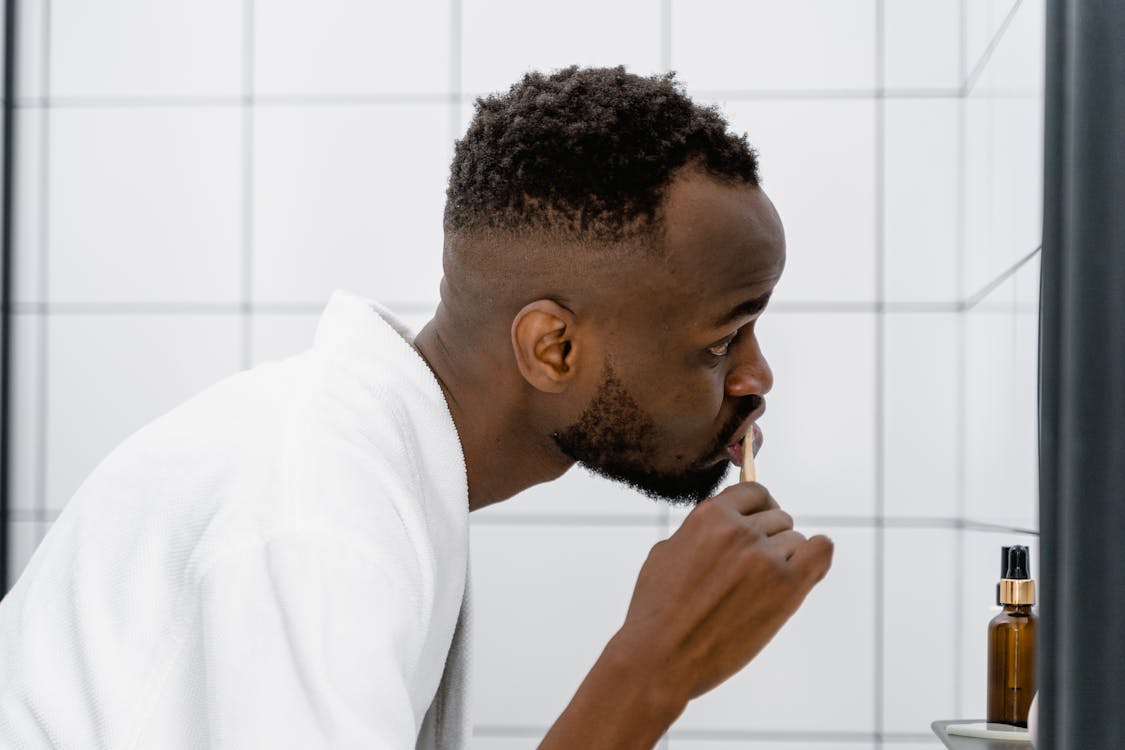
As artificial intelligence (AI) extends from offices to personal areas, privacy and security concerns have also crept into the bathroom.
In recent years, multiple personal care brands have ventured into AI and developed tech products, such as AI toothbrushes, which claim to help consumers improve their oral hygiene with algorithms and companion apps.
Despite insufficient scientific proof to support this claim, AI toothbrushes have reached their target market, attracting more brands to integrate advanced technology into their products with the extra benefit of collecting user data.
Brushing teeth with AI
The fusion of AI and toothbrushes was the brainchild of French company Kolibree, which debuted its Ara brush in 2017. This high-tech toothbrush is embedded with a processor for deep learning algorithms that teach AI about the user’s habits, as CEO Thomas Serval explained during its launching at the Consumer Electronics Show in the same year.
The data collected is then synced to an app via Bluetooth to let the user know how they can better brush their teeth.
Colgate has joined the hype train, too, with an AI toothbrush connected to the Colgate Connect app that recommends brand products in addition to oral health tips. Since then, Procter & Gamble’s (P&G’s) Oral-B and Philips have followed suit with similar offers.
In July, Oclean became the latest member after launching its X Ultra, which also works with Wi-Fi.
More than just a toothbrush
However, these AI toothbrushes are delivering services beyond what they were bought for. Most companion apps not only provide details about toothbrushing habits but also purchase links to healthcare products.
Moreover, P&G and Colgate-Palmolive have disclosed their plans to apply AI in developing their products, relying on advanced algorithms to correctly gather and analyze consumer habits and feedback instead of conventional surveys and focus groups that are often inaccurate.
P&G is also open to leveraging AI to enhance marketing. According to Chief Brand Officer Marc Pritchard, technology embedded in everyday products can replace advertisements.
This raises concerns about privacy and security as users become contributors to a company’s marketing, research and development, and sales strategies without their knowledge.
Colgate-Palmolive, Oral-B, Oclean, and Philips all state in their privacy policies that the apps associated with their toothbrushes may collect personal data that can be potentially used for advertising or shared with third parties.
Oral-B’s policy further says that data may be gathered from the sensors built into their products for similar purposes.
While users can choose not to let their data be shared or targeted for ads, it is unlikely for them to go through privacy policies when using a toothbrush.
In addition, cybersecurity becomes at risk when using Oclean’s X Ultra due to its online connection. An Oclean official already cautioned that their toothbrush’s Wi-Fi connectivity is optional, so users may connect to the app via Bluetooth only.
Still, there may be benefits
Amid these concerns, a study suggested that the use of AI toothbrushes could aid “patients’ poor performance and adherence to the necessary oral hygiene procedure” as part of treatment for gum disease or periodontitis.
Published in the Journal of Clinical Periodontology in April 2024, researchers from Shanghai Jiao Tong University School of Medicine’s Department of Oral and Maxillofacial Implantology found that AI-enabled, multimodal-sensing toothbrushes could “transmit valuable data to clinicians, thus enabling effective remote monitoring and guidance.”
This indicates that the toothbrushes may ultimately drive “better levels and duration of oral hygiene.”
Some dental experts also seem to agree. Associate Dean Dr. Kim L. Capehart at the Dental College of Georgia at Augusta University expressed in a 2021 paper for the Decisions in Dentistry journal that real-time feedback may allow the individual to take corrective action immediately.
Nevertheless, whether or not these potential benefits are enough to risk privacy remains a question for the future of AI toothbrushes in the market.










